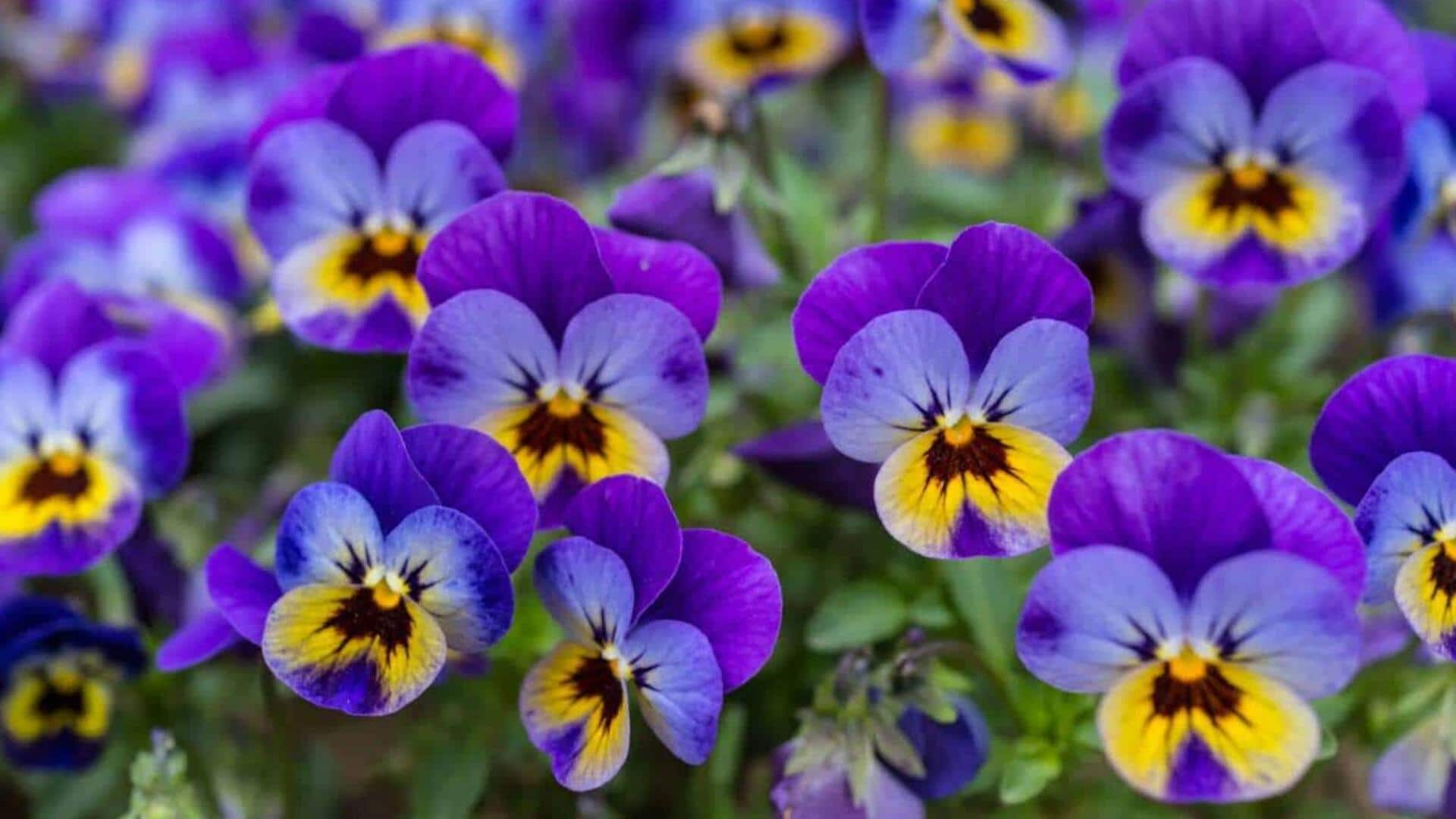
Vibrant violets: 5 shade-tolerant care strategies
What's the story
Violets are a go-to option for gardeners aiming to brighten up shaded areas with a pop of color.
These plants flourish under the canopy of trees or in other low-light environments, making them perfect for those spots where most flowers wouldn't survive.
In this article, you'll find five essential tips for nurturing your shade-loving violets, so they stay healthy and radiant throughout their blooming season.
Soil selection
Select the right soil
Violets thrive in well-draining soil abundant in organic matter.
A blend of peat moss, perlite, and garden compost is ideal. It supplies the essential nutrients and retains moisture without getting waterlogged.
Prior to planting, check the pH level of the soil. Violets prefer slightly acidic to neutral soil, with a pH ranging from six to seven.
Watering wisdom
Ensure proper watering
Although violets require regular moisture to flourish, overwatering can cause root rot and other diseases.
Water your violets when the top inch of soil feels dry to the touch.
Ideally, water them early in the morning or late in the afternoon to minimize evaporation and give the leaves a chance to dry before nightfall.
Feeding fundamentals
Fertilize thoughtfully
Feed your violets monthly during their growing season with a balanced liquid fertilizer, ideally a 10-10-10 blend of nitrogen, phosphorus, and potassium.
This provides essential nutrients without the risk of over-fertilization, which can lead to leaf burn and inhibit flowering.
It's important to follow the recommended dosage to avoid potential harm to the plants.
Pruning practices
Prune regularly
Pruning is crucial for preserving your violets' form, stimulating denser growth, and eliminating dead or diseased foliage that might harm the plant's health.
By cutting back about one-third of the plant's size after they bloom, you stimulate new growth and potentially a second flowering in autumn, keeping your garden beautiful.
Pest patrol
Monitor for pests
Even though violets are hardy, they can still fall victim to common garden pests such as aphids and spider mites.
Make sure to regularly check your plants for any signs of infestation, including discolored leaves or the presence of webbing on the underside of the foliage.
If you spot pests, immediately treat them with insecticidal soap or neem oil. Just ensure to follow the product's directions closely for maximum efficacy.